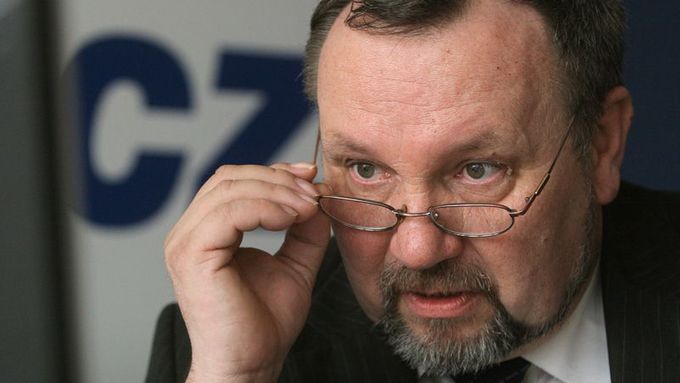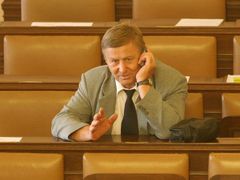Prague - Despite no longer enjoying the grip on power they once held in this country, the Communists are once again cast in the role of king-makers. It is their decison that can directly influence who is going to lead the country in the next five years.
The once dominant party that has been in opposition for the last 18 years, has not yet decided whether they prefer public or secret ballot in the upcoming presidential election.
But everybody knows that their 26 MPs and 3 senators may completely change the turn of events on Friday. Today, on the eve of the ballot, the Communists are to decide for whom and in which way they will vote.
"I will recommend to the Executive Board as well as to the members of our faction to vote for Professor Švejnar. I will also propose a public vote today," the head of the Communist faction Pavel Kováčik told Aktuálně.cz in an interview today.
Not decided yet
Convincing the Communist MPs to support Jan Švejnar will not be an easy task though. Not all of them share views of Pavel Kováčik who has been fully pro-Švejnar since the moment Social Democrats first put forward the nomination of the US-based professor of economics.
"He is not a left-wing candidate and we have a number of objections toward both (the incumbent president Václav) Klaus and Švejnar. But I consider Švejnar to be an alternative right-wing candidate, a chance for those who want change," Kováčik believes.
He allegedly sees a real chance that most of the Communists will support Jan Švejnar. "Our position is not decided yet. I estimate our support of public vote to be 80 per cent," adds Kováčik.
Prominent opposition
Two prominent voices in the party are strongly against the public ballot. Former Chairman of the Communist Party Miroslav Grebeníček seems to be determined to vote secretly.
"I am certainly pro-secret vote. If I remember well, the only public vote after November 1989 was the first election of Václav Havel by the Federal Assembly. It was the biggest farce in the post-November times," said Grebeníček.
"There is no reason to hold public ballot," added Václav Exner, another advocate of secret ballot in the ranks of the Communist Party.
At the beginning of January the majority of the Communist MPs were pro-secret ballot.
All-out war of the chambers?
Communist votes played a key role also in the presidential election five years ago. The power they had in their hands is now being taken into account by all parliamentary parties, during the debate about the method of voting. Should they decide for public vote, it will be only Civic Democrats proposing the secret ballot.
Social Democrats and Christian Democrats, long-time advocates of the open ballot, were joined by the Greens on Wednesday.
The Friday's vote may turn into an all-out war between the two chambers of the parliament over the mode of the ballot. The Chamber of Deputies will promote public vote, says its Chairman Miloslav Vlček, whereas the Civic Democrat-dominated Senate will advocate secret ballot, says the Senate Speaker Přemysl Sobotka.
Hopes of a direct vote
Czech presidency is a largely ceremonial post but enjoys deep respect from the Czech public who follow the pre-election heated atmosphere closely, surveys repeatdly showed.
The growing tension of the battle for the Prague Castle, indicating behind-the-scenes vote buying and other horse-trading deals, suggests only one way out: a direct vote, which is supported not only by the public but by politicians as well.
They have been promising to alter the Constitution since the critical year 2003 when it took three rounds to produce a successor to Václav Havel.
This year´s charades surrounding the presidential election and the possibility of the ballot ending in a fiasco may be a good reason to speed the process so that the people, not the lawmakers, make the choice next time around.








